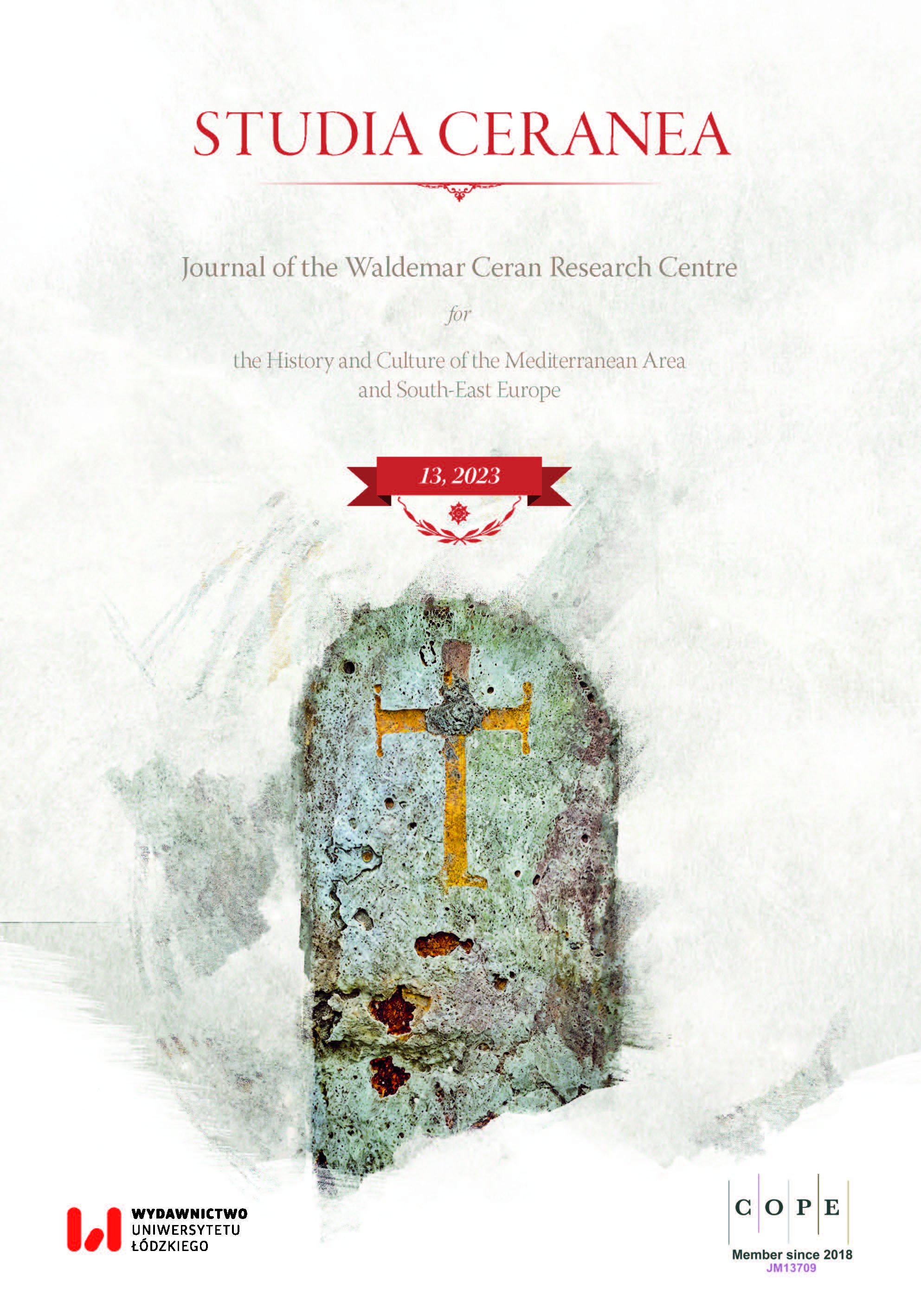Food for Life: Galen’s "On Health" ("De sanitate tuenda")
DOI:
https://doi.org/10.18778/2084-140X.13.30Słowa kluczowe:
ancient medicine, Greek medicine, Galen, 'De Sanitate Tuenda', health, disease, foodAbstrakt
In Galen’s view, health was a natural state and disease unnatural. If a body became unwell, balance was best restored by adjustments to daily life, in particular to the environment, food and drink, exercise, sleep, physiological balance and mental health. If none of these worked, only then should drugs or more drastic treatments be considered. Galen sets out in On Health how the natural state is best preserved, starting from birth, through childhood, to adulthood and old age. There are several features to be noted, not least the relentlessly male focus (with childbirth the major area of consideration for women specifically) and the use of the idealised young man as the canon against which to measure all bodies. This latter feature has led commentators to suppose that Galen only has the leisured rich class in mind, wrongly I believe. Two recent translations in the Loeb series (Johnston) and in the CUP Galen series (Singer forthcoming) have made the text readily available to all, and further discussion is timely. In my paper I will focus on Galen’s use of diet and massage to keep the body healthy. I shall also consider the unhealthy body which takes up the last three of the six books, as the life span nears later age and greater fragility. Even here, Galen prefers food and gentle remedies to bloodletting and drugs (which are in effect often stronger versions of food plants). Galen claims that this regime has kept him healthy for 50 years, despite his less than perfect constitution and lifestyle. He is thus a doctor who experiments on himself to promote a lifestyle which, he claims, should, after an initial assessment, maintain the patient without need of a doctor for life.
Pobrania
Bibliografia
Brock A., Greek Medicine. Being Extracts Illustrative of Authors from Hippocrates to Galen, Dent 1929.
Google Scholar
Galen, Hygiene, trans. I. Johnston, Cambridge Massachusetts 2018 [= Loeb Classical Library], https://doi.org/10.4159/DLCL.galen-hygiene.2018
Google Scholar
DOI: https://doi.org/10.4159/DLCL.galen-hygiene.2018
Galen, Hygiene, trans. R. M. Green, Springfield 1951.
Google Scholar
Galen, On the Natural Faculties, trans. A. Brock, London–New York 1916 [= Loeb Classical Library, 71], https://doi.org/10.4159/DLCL.galen-natural_faculties.1916
Google Scholar
DOI: https://doi.org/10.4159/DLCL.galen-natural_faculties.1916
Galen, Psychological Writings, trans. P. N. Singer, Ph. van der Eijk, Cambridge 2013 [= Cambridge Galen Translations].
Google Scholar
Galen, Writings on Health. Thrasybulus and Health, trans. P. N. Singer, Cambridge 2023 [= Cambridge Galen Translations].
Google Scholar
Galen, Works on Human Nature, vol. I, Mixtures. (De temperamentis), trans. P. N. Singer, Ph. van der Eijk, P. Tassinari, Cambridge 2018 [= Cambridge Galen Translations].
Google Scholar
Galeni De sanitate tuenda, ed. G. Helmreich, Lipsiae 1923 [= Corpus Medicorum Graecorum, V.4.2].
Google Scholar
Härig G., Bestimmung der Intensität im medizinischen System Galens. Ein Beitrag zur theoretiscchen Pharmakologie, Nosologie und Therapie in der Galenischen Medizin, Berlin 1974.
Google Scholar
Littman R. J., Silverstein J., Goldsmith D., Coughlin S., Mashaly H., Eau de Cleopatra. Mendesian Perfume and Tell Timai, “Near Eastern Archaeology” 84.3, 2021, p. 216–229, https://doi.org/10.1086/715345
Google Scholar
DOI: https://doi.org/10.1086/715345
Marai M., A Green Plaster for Wound Healing. Antimicrobial Formulations and the Use of Plant Resins in Graeco-Roman medicine, https://warwick.ac.uk/fac/arts/classics/research/publicengagementimpact/material_musings/2023/#March [31 V 2023].
Google Scholar
Marsden D., Wilkins J., Gill C., Dieppe P., Galen and Wellbeing: Whole Person Care, “The International Journal of Whole Person Care” 1.2, 2014, p. 76–78, https://doi.org/10.26443/ijwpc.v1i2.84
Google Scholar
DOI: https://doi.org/10.26443/ijwpc.v1i2.84
Photos-Jones E., Pigments Giving More than Colour: the Case of Lemnian Earth or miltos, “Technai” 14, 2023, p. 123–136.
Google Scholar
Singer P. N., The Essence of Rage: Galen on Emotional Disturbances and their Physical Correlates, [in:] Selfhood and the Soul, ed. R. Seaford, J. Wilkins, M. Wright, Cambridge 2017, p. 161–196, https://doi.org/10.1093/acprof:oso/9780198777250.003.0010
Google Scholar
DOI: https://doi.org/10.1093/acprof:oso/9780198777250.003.0010
Singer P. N., Time for the Ancients. Measurement, Theory, Experience, Berlin 2022, https://doi.org/10.1515/9783110752397
Google Scholar
DOI: https://doi.org/10.1515/9783110752397
Trease G. E., Evans W. C., Pharmacognosy, London 2009.
Google Scholar
Pobrania
Opublikowane
Jak cytować
Numer
Dział
Licencja

Utwór dostępny jest na licencji Creative Commons Uznanie autorstwa – Użycie niekomercyjne – Bez utworów zależnych 4.0 Międzynarodowe.














